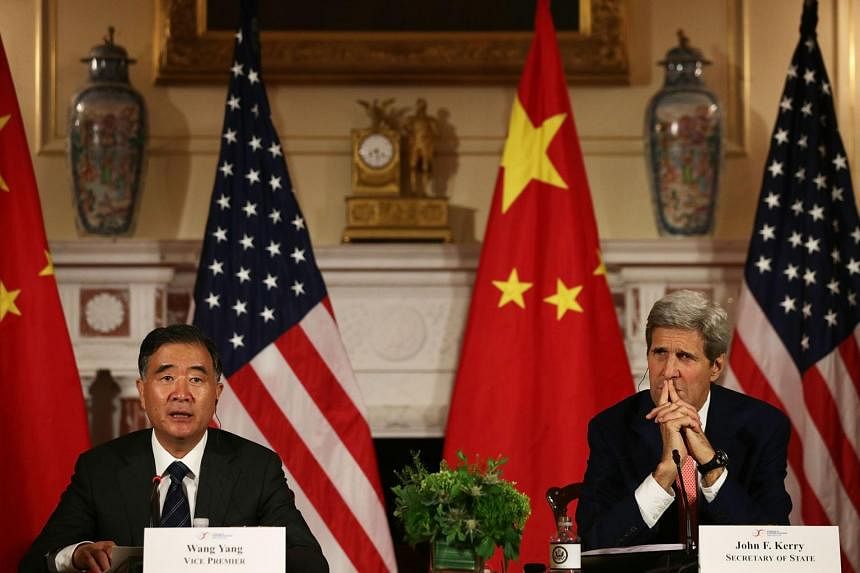Over the past two days, hundreds of officials from the United States and China gathered in Washington, DC for their annual high-level meetings. Called the S&ED or Strategic and Economic Dialogue, the meetings bring together a host of big names from both sides. On the American side, there were Vice President Joe Biden, Treasury Secretary Jack Lew, Secretary of State John Kerry and a host of other department leaders. Beijing sent two vice premiers - Ms Liu Yandong and Mr Wang Yang- as well as State Councilor Yang Jiechi.
The two sides discussed a broad range of topics including maritime security issues, cybersecurity, climate change, wildlife protection, trade and economic cooperation.
While the meetings do normally attract a lot of attention, the stakes at this week's meetings seemed higher than normal. And that is unusual given that most observers warned ahead of time not to expect too much by way of concrete deals. Why the fuss this year? Here are five reasons:
1. Can the two still get along?
In the months leading up to the dialogue, US-China ties took a dive as both sides clashed, first on the South China Sea and then on cybersecurity. Last month, both sides were engaged in a war of words on Chinese reclamation and island building in the South China Sea, with the US accusing China of raising tensions. Then earlier this month, Washington blamed Chinese based hackers for a cyber attack that compromised millions of personal records of current and former US federal employees.
The worry among observers was that these issues would dominate proceedings at the meeting, effectively derailing the most important bilateral partnership in the world. While no one was expecting the US and China to suddenly forget everything and be best friends, they wanted to see evidence that the superpowers could work together even when they are bickering.
At the end of it, there was enough proof that the US-China relationship is still a functional one. Though they exchanged strong words on the contentious issues, the two countries also found common ground on a host of others. A US State Department statement outlined 127 outcomes and areas of cooperation the two sides agreed on.
2. Keeping up the momentum on climate change
Observers will also be looking for both sides to keep up momentum on climate change with key environmental conferences taking place later this year. US and China represent the largest carbon emitters of the developed and the developing world and any progress they make on the issue can have tremendous impact on how the rest of the world treats climate change. Fortunately, this is one issue where both sides have recently been able to agree on and observers are looking for the US and China to build on the landmark agreement President Barack Obama and President Xi Jinping unveiled last year. On this score, the two sides did not disappoint, announcing a string of environmental initiatives and stressing a commitment to work together with other countries on a climate agreement at the United Nations climate change conference in Paris this December. For instance, they agreed to work together on initiatives to protect and conserve oceans.
3. Iran
The deadline for a nuclear deal with Iran comes up next week and it remains unclear if negotiators will be successful in securing an agreement. That's why it is more important than ever for the P5+1 countries negotiating with Iran (a grouping that includes both US and China) to put up a united front. While Iran did not feature heavily in the talks, the two sides did stress they shared a common interest in solving the Iranian nuclear issue through diplomatic means.
4. The economy and speedbumps ahead
Among the most important aspects are the ones that touch on economic cooperation. The global economy is facing some potential bumps in the coming months including a possible Greek default and the US Federal Reserve raising interest rates for the first time in years. Observers say they hope the officials of the two biggest economies in the world will be on the same page about how to deal with the economic challenges ahead.
5. It sets the scene for President Xi's visit
Part of the reason few concrete deals were expected at this year's dialogue is because both sides want to save them for the visit by Chinese President Xi Jinping to Washington in September. That means a lot of negotiations will have to take place behind the scenes at this dialogue to ensure a productive visit by the Chinese leader.


